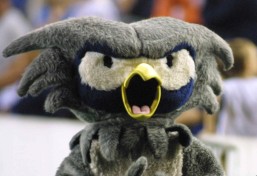Titles and Abstracts
Eric Chesebro (Rice University): A family of virtually special links
Abstract: I will present a family of 2-component links in S3 who have hyperbolic complements for which many algebraic and geometric invariants can be easily computed. Among other things, this allows us to to show that these links are all pairwise incommensurable yet they all have the same trace field. Also, associated to each link is a natural action of the fundamental group on a nonpositively curved square complex. We show that these complexes are virtually special, a definition given by Frederic Halglund and Daniel Wise to show that the acting groups are GFERF. Work of Ian Agol's implies further that these links are virtually fibered. I will mention our current project where we are trying to generalize this situation to show that a broader class of manifolds are GFERF and virtually fibered. (This is work in progress, joint with Jason Deblois and Henry Wilton.)
Oliver Dasbach (LSU): On a dimer model for the Alexander polynomial of a knot
Abstract: We will discuss a dimer model for the Alexander polynomial - essentially due
to Kauffman - and its relations to other knot invariants.
Cameron Gordon (UT Austin): Heegaard genus and Dehn filling
Abstract: We will discuss the behavior of Heegaard genus under Dehn filling, focusing on the case of knots in S^3. We will also apply our results to the conjecture that any Seifert fibered Dehn surgery on a hyperbolic knot in S3 must be integral. This is joint work with Ken Baker and John Luecke.
Peter Horn (Rice University): The Non-triviality of the Grope Filtration of the Knot Concordance Group
Abstract: In 2003, Cochran, Orr and Teichner introduced the n-solvable filtration, {Fn}, of the topological knot concordance group. It was initially shown that the first few levels of this
filtration are highly nontrivial, but not until recently have Cochran, Harvey and Leidy proven that
Fn/Fn+1 has infinite rank for every n.
Also introduced by Cochran-Orr-Teichner was the grope filtration {Gn}
where it was proven that Gn+2 is contained in Fn. Not much was known about the grope filtration until Cochran and Teichner recently proved that
Gn+2/Gn+3 contains elements of infinite order.
Our main result is that, for each n, Gn+2/Gn+3 has infinite rank.
Hee Jung Kim (LSU): Smooth Surfaces with Non-Simply-Connected Complements
Abstract: The Fintushel-Stern rim surgery technique and its variations have
given rise to many constructions of interesting smoothly knotted surfaces in
4-manifolds. For the most part, both the ambient manifold and the complement
of the surface have been assumed to be simply-connected. In this talk, we
will provide several constructions of smoothly knotted but topologically
standard surfaces embedded in simply connected 4-manifold whose complements
have nontrivial groups.
Maggy Tomova (Rice University): C-incompressible planar surfaces in knot complements
Abstract:
Thompson has shown that if bridge position and thin position for a
knot do no coincide then the knot complement contains a meridional essential
surface. We will show that this surface also does not have any cut-disks and
give some applications of this result.
Please send comments to Shelly Harvey - shelly at rice.edu.
